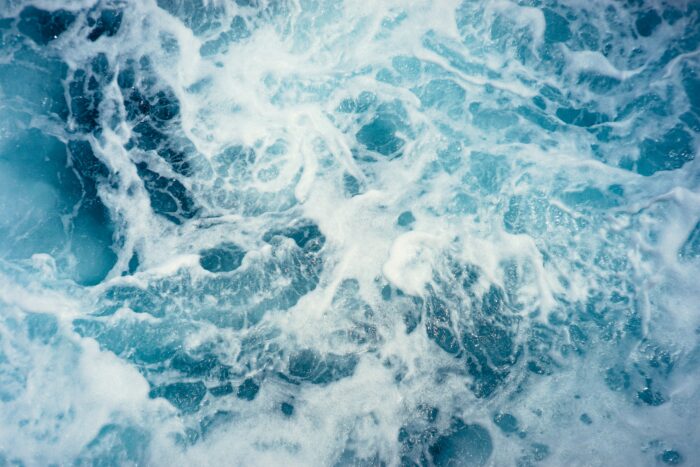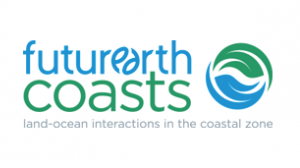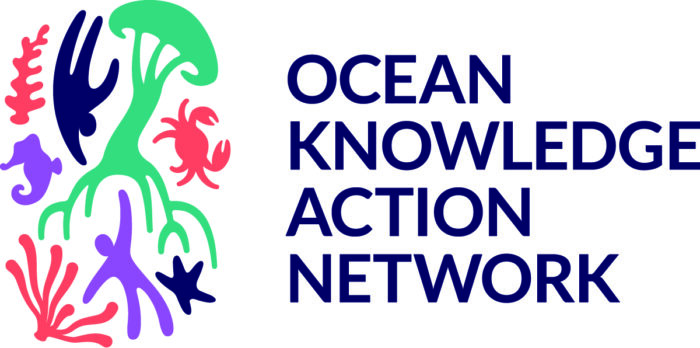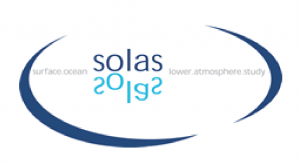World Oceans Day: Future Earth’s Work to Protect the Planet’s Life Source

World Oceans Day is celebrated every year on the 8th of June to highlight the importance of ocean conservation, the role oceans play in global sustainability, and how they support life on our planet. Oceans cover more than 70% of the planet, and are a major source of food and a critical part of the biosphere.
Future Earth convenes researchers from all parts of the world across different societal and academic sectors working on various issues related to global sustainability. For World Ocean Day, we want to highlight four of our Global Research Networks dedicated to ocean, marine, and coastal research.
Expand the sections below to read more about their contributions.

Future Earth Coasts (FEC) is a global network of coast scientists and practitioners in Ghana, Argentina, Australia, China, and the USA. Their collective mission is dedicated to the sustainable development of coastal zones worldwide. FEC has been actively collaborating with its networks and community partners, focusing on three key themes of inquiry: Dynamic Coasts, Human Development and Coasts, and Pathways to Coastal Sustainability.
To advance their mission, FEC has been organizing monthly workshops and webinars,
bringing together thematic experts to achieve the following objectives:
- Foster a shared understanding of coastal environments and their future prospects
- Collaboratively design robust strategies to shape desired coastal futures
- Facilitate the co-production of innovative coastal sustainability initiatives and pathways to realize these desired outcomes, contributing to the achievement of the Sustainable Development Goals.
Since December 2022, Future Earth Coast has been organizing a series of capacity-building events ‘FEC Fellows Sessions’ to gear up Early Career Researchers by providing meaningful networking and professional development opportunities. In February 2023, FEC launched the interview series FEC dialogue with Female Scientists and Academy Members. In March 2023, FEC launched ‘Tour de Coasts’ initiative to create a comprehensive understanding of coastal sustainability challenges and opportunities from a global perspective
 IMBeR – Integrated Marine Biosphere Research – is a large global research project which focuses on ocean sustainability in the context of global change. We want to understand past, present and future changes to the ocean. In particular, we want to know how we can achieve a sustainable ocean for the benefit of society. IMBeR’s research goal is to understand, quantify and compare historic and present structure and functioning of linked ocean and human systems to predict and project changes including developing scenarios and options for securing or transitioning towards ocean sustainability.
IMBeR – Integrated Marine Biosphere Research – is a large global research project which focuses on ocean sustainability in the context of global change. We want to understand past, present and future changes to the ocean. In particular, we want to know how we can achieve a sustainable ocean for the benefit of society. IMBeR’s research goal is to understand, quantify and compare historic and present structure and functioning of linked ocean and human systems to predict and project changes including developing scenarios and options for securing or transitioning towards ocean sustainability.
In 2022, IMBeR published a 2-volume special issue “IMBeR West Pacific Symposium: Changing West Pacific Ocean: Science and Sustainability.” In 2023, Integrating Climate and Ecosystem Dynamics in the Southern Ocean (an IMBeR Regional Programme) completed a 23-article special issue ‘Marine Ecosystem Assessment for the Southern Ocean: Meeting the Challenge for Conserving Earth Ecosystems in the Long Term.” IMBeR scientists also proposed an Action Plan for the Ocean to address the threats to the ocean.
 The Ocean Knowledge Action Network is a modern, cross-network community that connects people from around the globe who are working to bring together scientists and stakeholders for the co-design of ocean science. They are a self-organizing and decentralized network where people share knowledge and support each other to better co-design ocean science, build and maintain effective networks, and address the many other challenges and opportunities that come from using science to inform ocean decision making. Their community does this through trusted relationships, a spirit of openness, and a willingness to experiment.
The Ocean Knowledge Action Network is a modern, cross-network community that connects people from around the globe who are working to bring together scientists and stakeholders for the co-design of ocean science. They are a self-organizing and decentralized network where people share knowledge and support each other to better co-design ocean science, build and maintain effective networks, and address the many other challenges and opportunities that come from using science to inform ocean decision making. Their community does this through trusted relationships, a spirit of openness, and a willingness to experiment.
Highlights for the last year include
- A special issue in the ICES Journal of Marine Sciences
- Members proposed a new International Panel on Ocean Sustainability
- Mentoring and judging of the Ocean Hackathon in Malaysia
- A keynote speech at the Ocean Hackathon Grand Finale in France, and the co-creation of a workshop on science storytelling with partners from the Seychelles and the Western Indian Ocean Early Career Scientists Network.
- They held their first in-person meeting hosted by Future Earth Taipei’s Ocean Working Group, Future Earth Taipei Global Hub, and Academia Sinica where they updated their governance, common purpose, and ways of working, and much more.
 SOLAS research aims to understand the key biogeochemical-physical interactions and feedbacks between the ocean and atmosphere, and of how this coupled system affects and is affected by climate and global change – the only international program designated for such research.
SOLAS research aims to understand the key biogeochemical-physical interactions and feedbacks between the ocean and atmosphere, and of how this coupled system affects and is affected by climate and global change – the only international program designated for such research.
SOLAS is currently holding its 9th International Summer School, with 66 students from 25 countries and 30 lecturers, practical demonstrators, and organizers gathering at the Ocean Science Center Mindelo, Sao Vicente, Cape Verde. This Summer School consists of lectures and hands-on practicals around air-sea interactions and climate change. It also provides students a platform to present their research works and build connections with their peers and world-leading SOLAS scientists.
Over the past year, SOLAS made breakthroughs in engaging underrepresented regions and launched a Regional Panel in Southeast Asia. SOLAS also established its feature committee, Early Career Scientist Committee, which has already shown significant momentum to further strengthen SOLAS sciences and networks despite being newly formed.
DATE
June 8, 2023AUTHOR
Future Earth Staff MemberSHARE WITH YOUR NETWORK
RELATED POSTS
Future Earth Members Join UN Ocean Conference in Barcelona
Future Earth Experts Contribute to “10 Must Knows” as a Guide to Preserving Biodiversity
SOLAS Researchers Publish Special Feature on Air-Sea Interface in Changing Climate